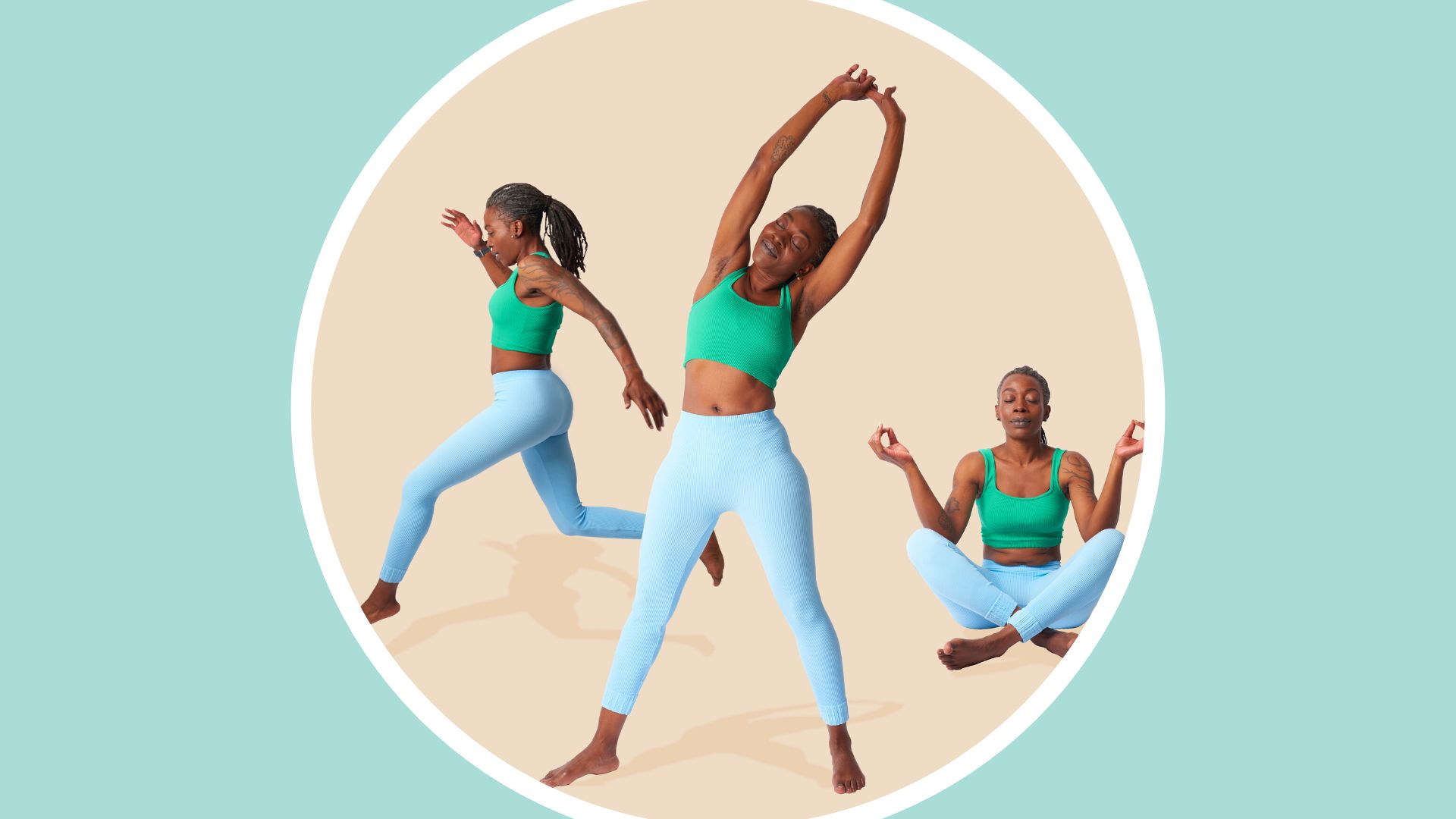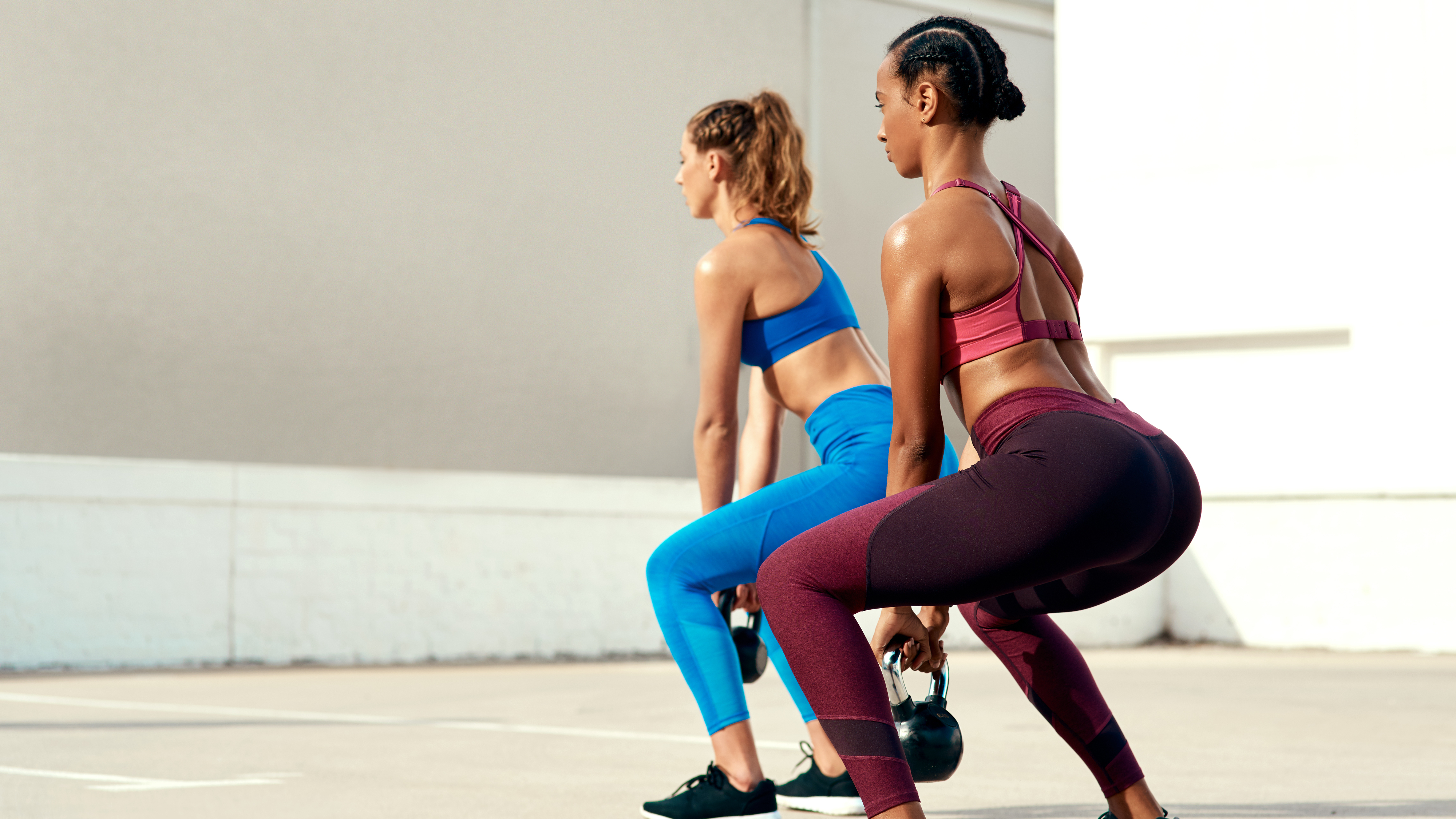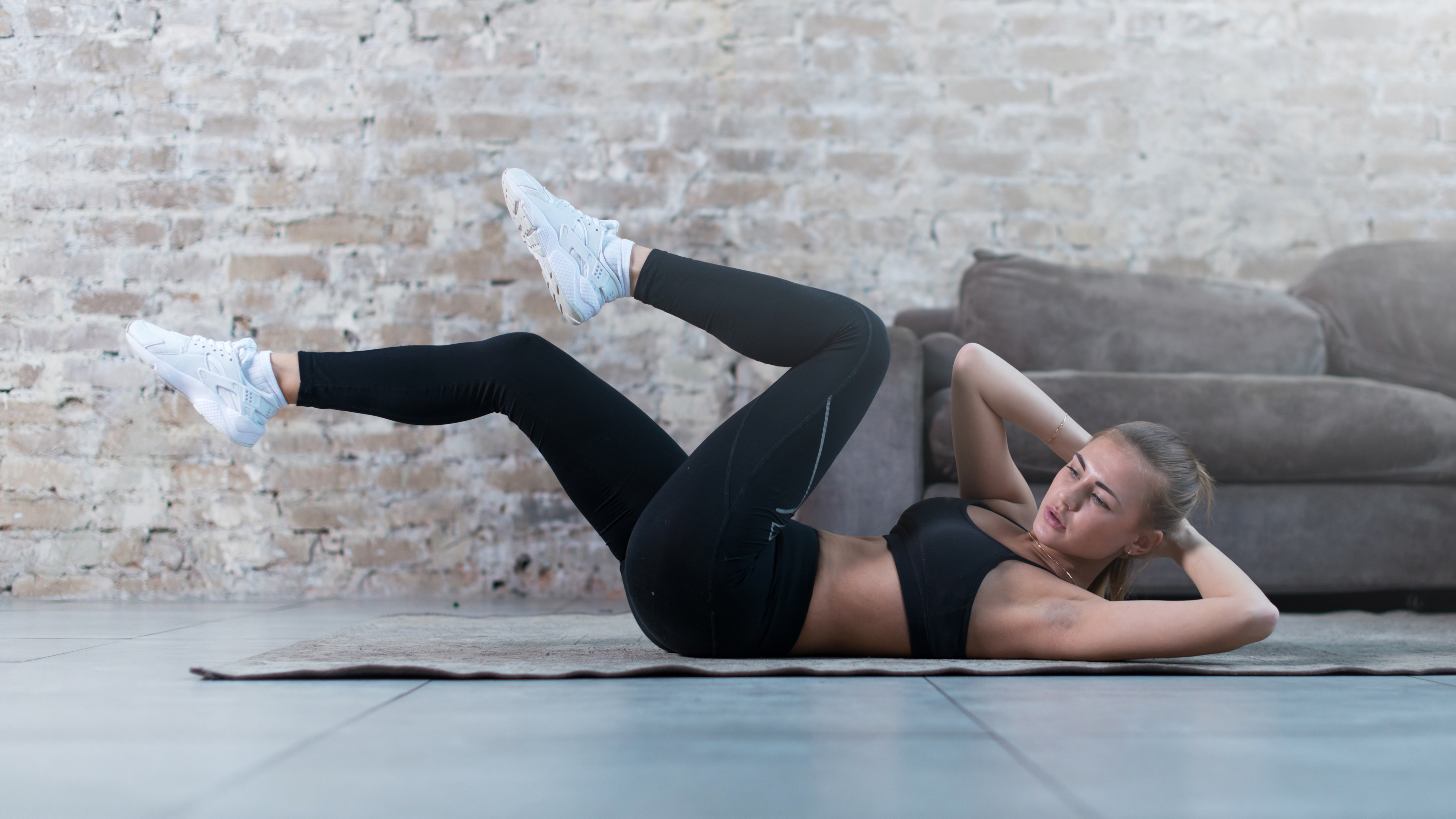Benefits of exercise: how getting fit will transform your body (and mind)
Need a little motivation to lace up your trainers? These benefits of exercise will give you some much-welcome workout encouragement

Along with eating your greens and getting enough sleep, we all know that the benefits of exercise are something we really should be tapping into. In the United States, the Centers for Disease Control and Prevention recommend adults between the ages of 18 and 64 do 150 minutes of moderate, or 75 minutes of vigorous, exercise each week.
Sounds easy, right? Yet, somehow many of us still end up finding ourselves watching a fitness influencer on TikTok demonstrate how to carve steely abs, rather than whipping out one of the best yoga mats and some resistance bands for women and actually getting moving. (Guilty!) Indeed, a 2018 study in the National Health Statistics Reports found that just 23% of Americans are hitting the advised levels of activity.
If you're in need of a little motivation, reminding yourself of why you should be getting your sweat on in the first place is a great way to get into a good habit of frequent workouts—be that running, HIIT or weight training. As we'll tell you, the positives run far deeper than a toned body. Grab your best reusable water bottle and hear our eight reasons to break a sweat now. Warning: you'll be squat jumping in no time... (Don't forget overdoing it can be a problem too—too much exercise can actually make you put on weight).
Benefits of exercise: 8 reasons to get fit
1. Builds strength
One of the key perks of exercise is that it helps hone muscle. This makes you stronger—terribly handy when carrying home the food shopping—and leaves you looking seriously toned, which is also nice.
What's more, research has found that just two strength training sessions—be that with your body weight or lifting weights—a week can boost your metabolism. This means that you'll burn fat, even when resting. Resistance exercises will also help stave off osteoporosis by increasing bone density, and a UCLA study discovered that more muscle equals a longer lifespan.
So, strength workouts are good news! The bad news, however, is that we start to naturally lose muscle mass from our 30s onwards, so better dust off those dumbbells pronto. (Or if you want a gear refresh, take a look at our picks for the best dumbbells for women.)
2. Boosts mood
Ever heard of the "runner’s high"? Well, working out to improve your mental health really is a thing. However, it's not just pounding the sidewalks that will ward off conditions like anxiety and depression, but any form of exercise can trigger those happy vibes.
A study in The Lancet Psychiatry journal found that 45 minutes of working out, three to five times a week, hit the mind-calming sweet spot. Research has confirmed that physical activity releases feel-good chemicals, like endorphins and serotonin. Sign us up!

3. Manages weight
If healthy fat loss is your goal, experts agree that nutrition is vital. However, upping your fitness game can, of course, also help you safely trim down. Simply put, exercise increases the number of calories your body "burns off" for energy, creating—depending on the calories you consume—a "calorie deficit" with slimming results.
What’s more, a sports medicine study has shown that incorporating cardio—like running, cycling or swimming—into your workouts has an appetite-reducing effect, by influencing your hunger hormones. But you need to put in some graft: a 2020 study found that those who worked out for 300 minutes a week lost more weight than others who trained twice in the same time frame.
4. Increases energy
While slipping out of bed to head to a spin class may seem like a paradoxical way to make yourself feel less tired, the medical evidence is that it really will. Physical activity leads to the production of mitochondria—the powerhouse of your body’s cells—which consequently supercharges your energy supply.
Additionally, working out also increases oxygen circulation, which helps your body use the energy that it has more efficiently. And which, in turn, will make you more inclined to head to that HIIT class. Gym newbie? Try these beginner's workout moves to get you started.
5. Improves self-confidence
Now, this isn’t because getting fit is meant to change how you look—exercise should primarily be about how it makes you feel (which, as per point two, should be pretty darn good).
What this is actually about is that research has shown that exercise can boost self-confidence. A 2017 study found that working out helps you feel better about your body image. The researchers discovered that all it took was a 30-minute sweat session to bring huge benefits to self-esteem—unlike the activity they compared it to, reading. (FYI, the latter brought none—although, no shade on a good book!)

6. Aids sleep
Regularly find yourself lying wide awake at night and struggling to nod off? If a cup of chamomile tea and the best meditation apps still aren't cutting it, it's worth taking steps to increase how much you move.
There’s an abundance of research that has shown how exercise effectively boosts sleep quality and duration. One study in the Mental Health and Physical Activity journal even found that doing 150 minutes of cardio a week led to a 65% improvement in snooze time. Sweet dreams, indeed.
7. Enhances brainpower
An unexpected reason to slip on your activewear—but one we'll absolutely take. Regular training sessions can help make you smarter by improving cognitive function, according to research. An Economics & Human Biology study found that regular exercise can boost it by a whopping 15%.
While science isn’t yet certain exactly how it does this, they have—naturally—some cool theories. For instance, physical activity increases the supply of oxygen and blood around the body, which aids brainpower. There are also suggestions it increases the size of the hippocampus, the brain area crucial for verbal memory and learning. Clever!
8. Protects overall health
It’s a less sexy reason why working out should remain high on your to-do list, but one that is perhaps the most important of all.
You'll know well that a sedentary lifestyle isn't very healthy. In fact, it's worse— significantly increasing all causes of death, including your chances of cardiovascular diseases, diabetes and obesity, as well as colon cancer and high blood pressure.
In contrast, staying active will help reduce your risk—and a 2021 University of Oxford study found there were no limits, for example, to its positive impact on heart health. So, what are you waiting for?!
Lauren is a freelance writer and editor with more than six years of digital and magazine experience. Most recently, she has been the Acting Commissioning Editor of Women's Health—where she co-produced the Going For Goal podcast—and has previously also written news and features for titles including The Telegraph, Grazia, Stylist, Dazed, The Sun's Fabulous, Yahoo Style UK and Get The Gloss. She covers all aspects of lifestyle, specializing in health, beauty, and travel. Can't live without: oat milk lattes, new podcast episodes, long walks, and great skincare.